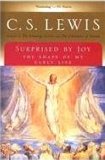Have you heard about the speech of Gen. Douglas MacArthur? I came across this speech some 38 years ago when I was still a teenager. This was his speech before the US Congress sometime in 1951. I was not even born yet. Of course I learned that not everybody liked him and he had his own faults and weaknesses. But I was really amazed that at the end of his career as a military man, as a great general who was most knowledgeable in the art of war, has was able to see clearly the solution to man’s great problem.
After World War I, the League of Nations was created to avoid another devastating world war. It failed. After Word War II, the United Nations was created. Again, in the hope that another world war would be avoided. But is it succeeding in its mission to unite the nations? I pray it does! But as it is right now, it seems to be a place of conflicting vested interests among nations and individuals. Lord help us from ourselves!
Here’s a portion of MacArthur’s speech:
“Men since the beginning of time have sought peace. Various methods through the ages have been attempted to devise an international process to prevent or settle disputes between nations. From the very start workable methods were found in so far as individual citizens were concerned, but the mechanics of an instrumentality of larger international scope have never been successful. Military alliances, balances of power, Leagues of Nations, all in turn failed, leaving the only path to be by way of the crucible of war. The utter destructiveness of war now blocks out this alternative. We have had our last chance. If we will not devise some greater and more equitable system, Armageddon will be at our door.
“The problem basically is theological and involves a spiritual recrudescence and improvement of human character that will synchronize with our almost matchless advances in science, art, literature, and all material and cultural developments of the past 2000 years. It must be of the spirit if we are to save the flesh.“
I’m still amazed up to now that this great general had great wisdom to see that man’s problems are “theological”—that is, “spiritual” in nature and “it must be of the spirit if we are to save the flesh.”
A Heart Problem
The solution to our country’s problems is not better laws, better law enforcement, better economic management, better politics or a better government. I mean, yes, these are all good and there are a lot of much needed reforms that need to be implemented but the main and core problem is really spiritual in nature and should also be addressed and given top priority if we are to succeed.
The problem is really in man’s character — a problem of the heart, the inner man — which needs a lot of re-aligning, rethinking and changing to conform one’s thoughts, words and deeds to that of our Lord and Savior Jesus Christ. And it begins with me.






